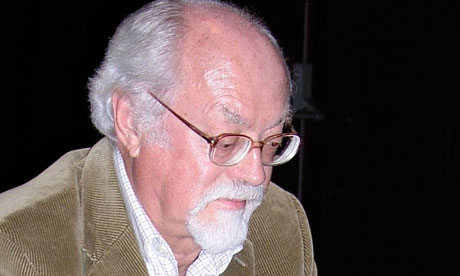
English studies at Cambridge around 1960 produced a significant number of highly original poets. One of them was RF Langley, who has died aged 72. His career as a poet was remarkable for its persistent fidelity to the aesthetic principles of modernism.
Roger Francis Langley was born and spent his working life in the West Midlands. He attended Queen Mary's grammar school, Walsall, then gained an open scholarship to Jesus College, Cambridge, in 1957. There he met the poet JH Prynne, who became a close friend. Encouraged by Donald Davie, they forged a new aesthetic out of the study of Ezra Pound and others, including the art historian Adrian Stokes. Roger's primary concerns during this period were visual; he painted and drew, and, with Prynne, undertook a study of Italian Renaissance art using Stokes's books, going on an extended tour of northern Italy in an old van.
Stokes's theory was that art should be carved and static rather than moulded and rhythmic, so that the principal figures in the picture may stand out distinctly in a stillness which invites contemplation. Through the disjointed nature of Pound's early work this was moved into poetry, which, rather than the continuous movement of the spoken language, offers a meditative stillness, as the poet focused on a mostly visual experience of the world. Roger sought occasions when he was "alone and perfectly still" and allowed words to elaborate freely from that point. He never abandoned these principles, and although the resulting poetry presents difficulties from a rationalist point of view, many have taken it to their hearts without necessarily understanding it fully in the usual sense.
Roger was a teacher for nearly 40 years, joining Wolverhampton grammar school in 1965, and going to Bishop Vesey's grammar school in Sutton Coldfield in 1980, where he was head of English until he retired. At Wolverhampton he met Barbara, whom he married in 1972, following a brief earlier marriage.
He also taught art history and offered classes at home. His painting and drawing continued, joined increasingly by poetry, and enthusiasts persuaded him to publish in small-press editions. His Collected Poems, published by Carcanet in 2000, contained just 17 poems; it was shortlisted for the Whitbread prize that year.
In 1999 he retired with Barbara to an area of rural Suffolk which had become a place of respite and creativity for him – some nine of the 17 poems are set there. His output increased, and his 2007 Carcanet book, The Face of It, held 21 poems. A further dozen have appeared since. From 1970 he kept a journal, from which some poems were directly drawn. The literary magazine PN Review has published entries from the journal for many years.
In Suffolk his lifelong pursuits of botany, ornithology, entomology (specialising in spiders) and old churches flourished. Bramfield, the village he lived in, held an iconic work for him: Nicholas Stone's 1627 tomb of Mrs Coke, to which he was first led by Prynne when they returned from Tuscany and Roger complained that he would never see a good piece of stone-carving again.
These studies were taken up into the poems, sometimes in disguised form, or more often as starting points for his verbal wizardry, making the scene flicker between actual and imaginary, descriptive and abstract. The dazzling techniques of modernism are brought to bear on quiet rural pursuits: the patient inspection of spiders through a magnifying glass, a cluster of waxwings, a ruined minster – a collection of personal "sacred sites" as he called them, treated with both wonder and precise, even scientific, attention.
His last poems showed an increasingly direct address, extensively describing a landscape or recounting an experience. As a distinctly challenging poetry, it remains remarkably gentle in its craft of verbal precision and figuration. Here is the end of his meditation in an isolated medieval church in Suffolk, an eloquent plea for us to pass beyond the literal:
We leave unachieved in the
summer dusk. There are no
maps of moonlight. We find
peace in the room and don't
ask what won't be answered.
We don't know what we see, so
there is more here. More. Here.
He is survived by Barbara, his children Ruth and Eric, and a granddaughter.
• Roger Francis Langley, poet, born 23 October 1938, died 25 January 2011

